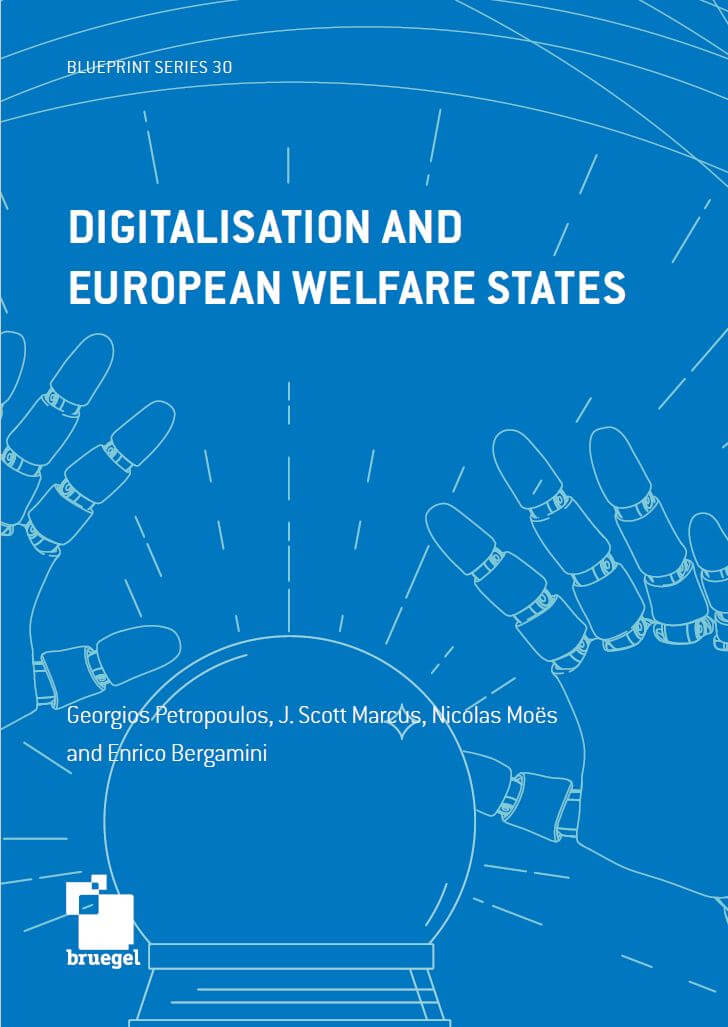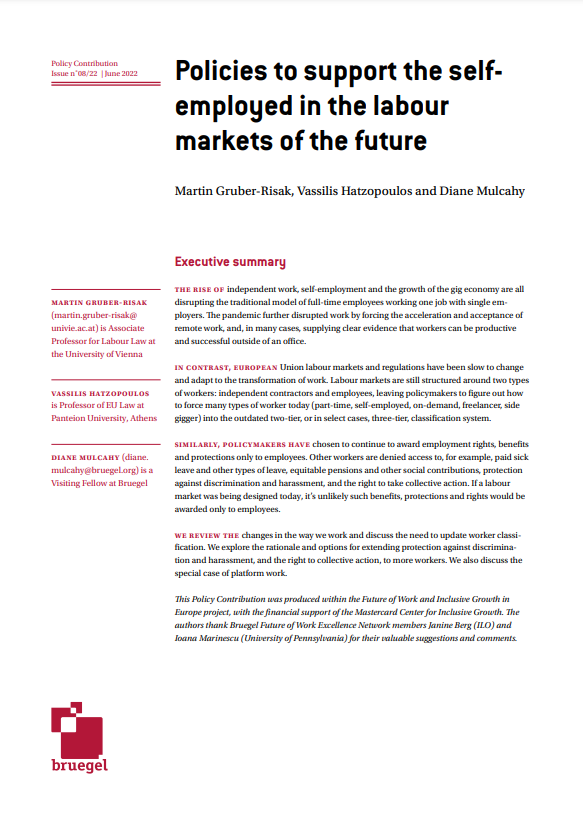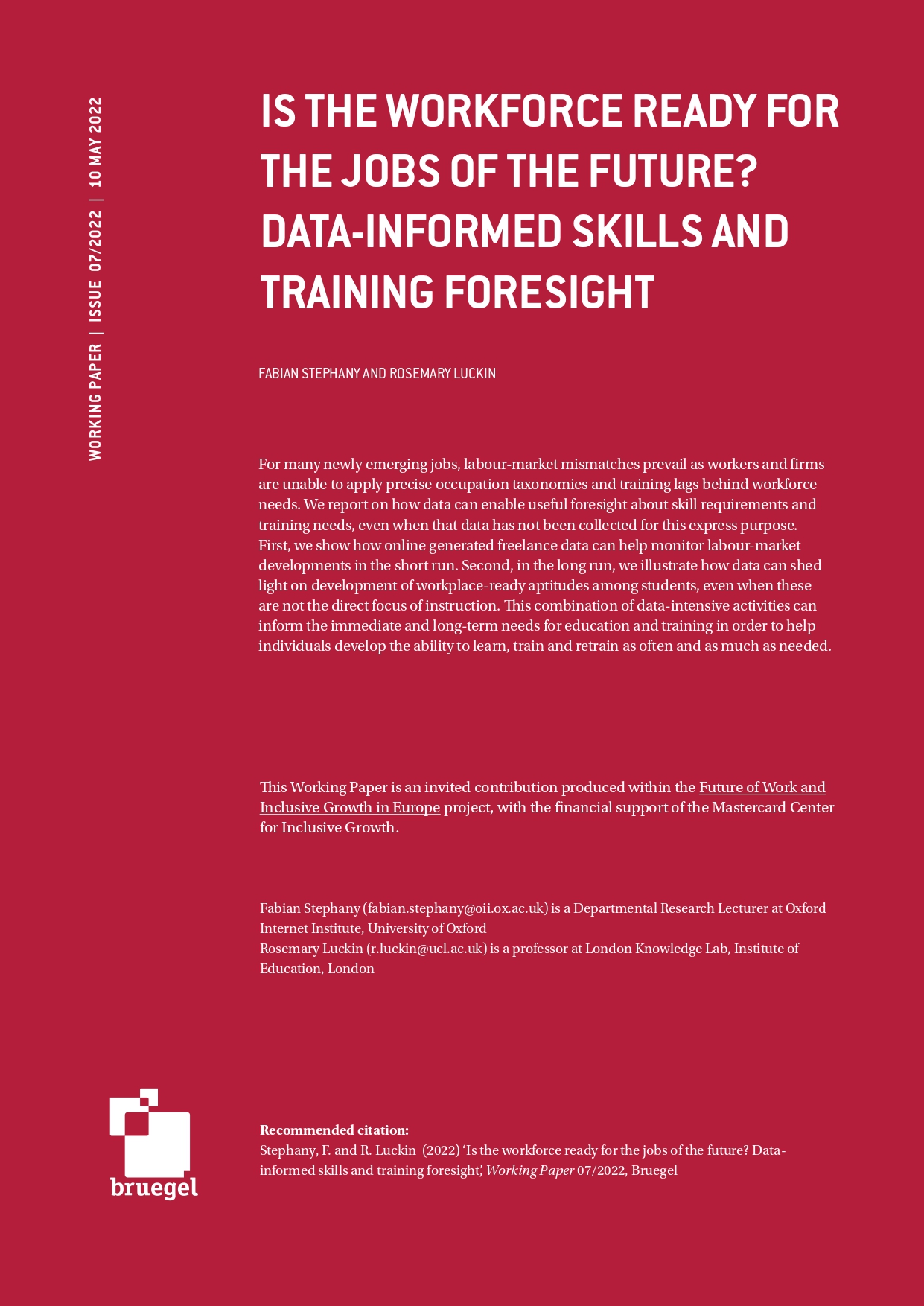Blueprint
Digitalisation and European welfare states
EU policymakers must find answers to pressing questions: if technology has a negative impact on labour income, how will the welfare state be funded? How can workers’ welfare rights be adequately secured? A team of Bruegel scholars, with the support of the Mastercard Center for Inclusive Growth, has taken on these questions.
Rapid technological progress and innovation can destroy jobs and disrupt welfare systems. This is not a new concern. Historically, automation of production processes has led to extraordinary efficiency gains and to the displacement of labour. But history has also shown that, in the longer run, the gains in efficiency pay off and new jobs are created.
But the past is not necessarily a guide to the future. Currently, an unprecedented digitalisation of our economy is underway. Artificial intelligence has become a reality and machines are able learn how to outperform humans in some cognitive tasks. The way work is performed is also changing, with jobs allocated via online platforms and people matched to tasks in a way that means they are neither full-time employees, nor self-employed workers in the traditional sense.
For welfare systems, which are largely funded by taxes on employment, these changes have significant implications. One of the big challenges of the twenty-first century will be to redefine the nature and functioning of welfare states in the context of the fundamental changes brought about by digitalisation, artificial intelligence and the changing status of workers. If technology has a negative impact on labour income, how will the welfare state be funded? How can workers’ welfare rights be secured?
This volumes tackles these questions and provides recommendations to inform the discussion in the European Union.
This report was produced with the financial support of the Mastercard Center for Inclusive Growth.








